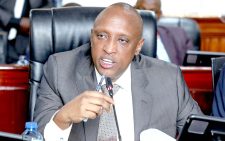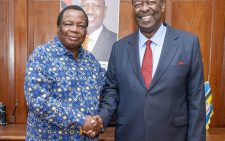Ruto faces tough choices on national cohesion

By dissolving his Cabinet and withdrawing the 2024 Finance Bill, President William Ruto has exposed the vulnerabilities his two-year government.
What appeared impossible a few weeks ago has been undone by pressure from Generation Z mass protests, the subject of intense discussions nationally and globally.
Youth-led protests have triggered a catalogue of public demands the President will inevitably have to acquiesce to so as to restore national cohesion.
The youths’ demands have won national solidarity, repudiating the government’s economic austerity measures and policies, mainly a heavy taxation burden on most citizens.
In hindsight, the choices would not have been tougher had the President adopted a listening ear rather than a perceived impervious response to the people’s overwhelming objections to the finance bill.
Such is the power the Constitution has vested in the people that failure to acknowledge their voice enshrined in the principle of public participation can provoke dire consequences.
Perhaps the biggest test Ruto faces now politically is how to respond to increased scrutiny of his commitment to democratic principles and fidelity to the Constitution exposed by the protests.
Members of the 13th Parliament have already experienced the wrath of the youthful protesters and the public, who have declared it an appendage of the Executive.
The harsh indictment of the pro-government MPs led to Ruto’s withdrawal of the bill and a revival of demands in the Raila Odinga-led “maandamano” of early 2023 that caused a massive political and economic upheaval.
Added to Gen Z pressure, he has been compelled to hastily assent to electoral reforms that have been a sticking thorn in his administration, after what seemed a period of reluctance.
By signing the IEBC (Amendment) Bill into law, he has opened the door for the possible popular invocation of the recall clause in the Constitution that could see some MPs sent packing well before the 2027 elections.
Ominously, the Opposition has jumped uninvited into the Gen Z protests bandwagon with alacrity, calling for the dissolution of Parliament and a snap General Election, which could be perilous for Ruto at this juncture.
The scrutiny of the sincerity of his administration’s policies and actions has also turned the spotlight on two interrelated issues in Kenyan politics – ethnicity and State appointments, currently featuring prominently in the national conversation.
Questions are being asked why contrary to often repeated assertions by the President, his allies and apologists that the last elections buried the tribal factor in Kenyan politics, the truth portends the opposite.
The truth cannot be hidden. The list of State appointments in the public domain tells the story – it is dominated by two ethnic communities, the Kalenjin and the Kikuyu, defying the detribalisation allegations.
Demands are rising for the Cabinet purge to be extended to principal secretaries, the accounting officers in government, and CEOs of strategic State corporations, which are virtually occupied by members of one ethnic community.
There seems to be a deficit of trust between the President and the people over his political and economic policies.
The coming weeks offer a critical test whether Ruto will be able to rebuild the rapidly diminishing trust aggravated by police brutality, extrajudicial killings and abductions.
It will no longer be business as usual of paying lip service to the Constitution or making unconvincing statements that widen the gap between the national leadership and citizens.
— The writer comments on national issues-












